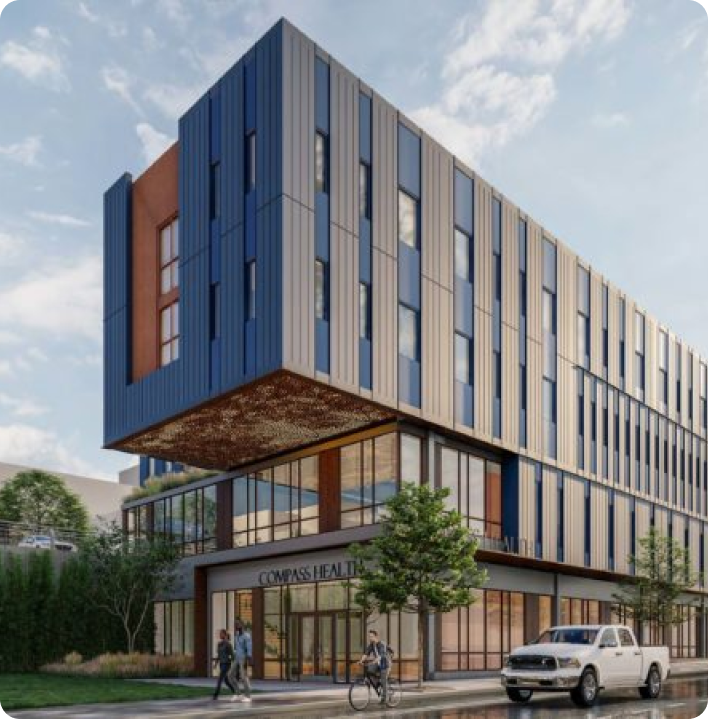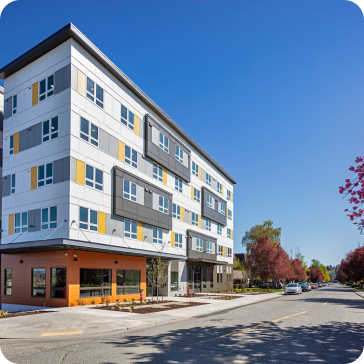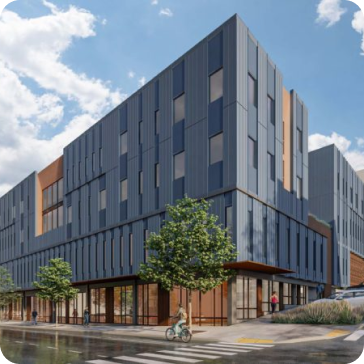Broadway Campus Redevelopment Project
The Broadway Campus Redevelopment Project is a three-phase project that will create a state-of-the-art regional center to bring together a full continuum of behavioral healthcare, primary healthcare and permanent supportive housing services in downtown Everett.
Our purpose
To deliver innovative, evidence-based models of care that meet urgent community needs, including homelessness services with mental health support, intensive behavioral health services, and advanced integrated healthcare.

Fulfilling a need
This project is designed from the ground up to address some of our region’s most urgent and critical challenges. Without investing in effective solutions, behavioral health issues, homelessness, and chronic mental illness and substance use disorders place an unsustainable burden on community resources. With this initiative, Compass Health is poised to build stronger partnerships and provide better outcomes to promote whole person health.
A three-phase project to address a spectrum of needs

Phase I
Phase I includes 82 new units of housing, coupled with facilities for integrated treatment and support services for people with chronic behavioral health challenges.
This five-story, multi-unit building, known as Andy’s Place, is located on the northwest corner of the current Broadway Campus. The ground floor provides space for on-site program services including peer support, homeless outreach and housing stabilization.

Phase II
Phase II is a state-of-the-art facility that supports community-based care for individuals who will benefit from intensive services. The 72,000 square foot building will accommodate one 16-bed evaluation and treatment unit and one 16-bed triage. The building will also house offices for crisis prevention, outreach and engagement teams and an on-site pharmacy.

Phase III
The final phase of the project will include an approximately 100,000 square foot building to house behavioral health services and a primary healthcare clinic. The facility will also host permanent supportive housing units and space for Compass Health administrative offices. More information to come.
Building community support
We publicly launched It’s Time: The Campaign for Compass Health, a $14 million capital campaign to fund Phase II of the Broadway Campus Redevelopment Project, which designed to meet intensive mental health needs.
FAQs
General
Phase I
Phase II
Broadway Development Questions
We know you may have questions about Andy’s Place or the rest of the Broadway Campus Redevelopment Project — we’re listening!


